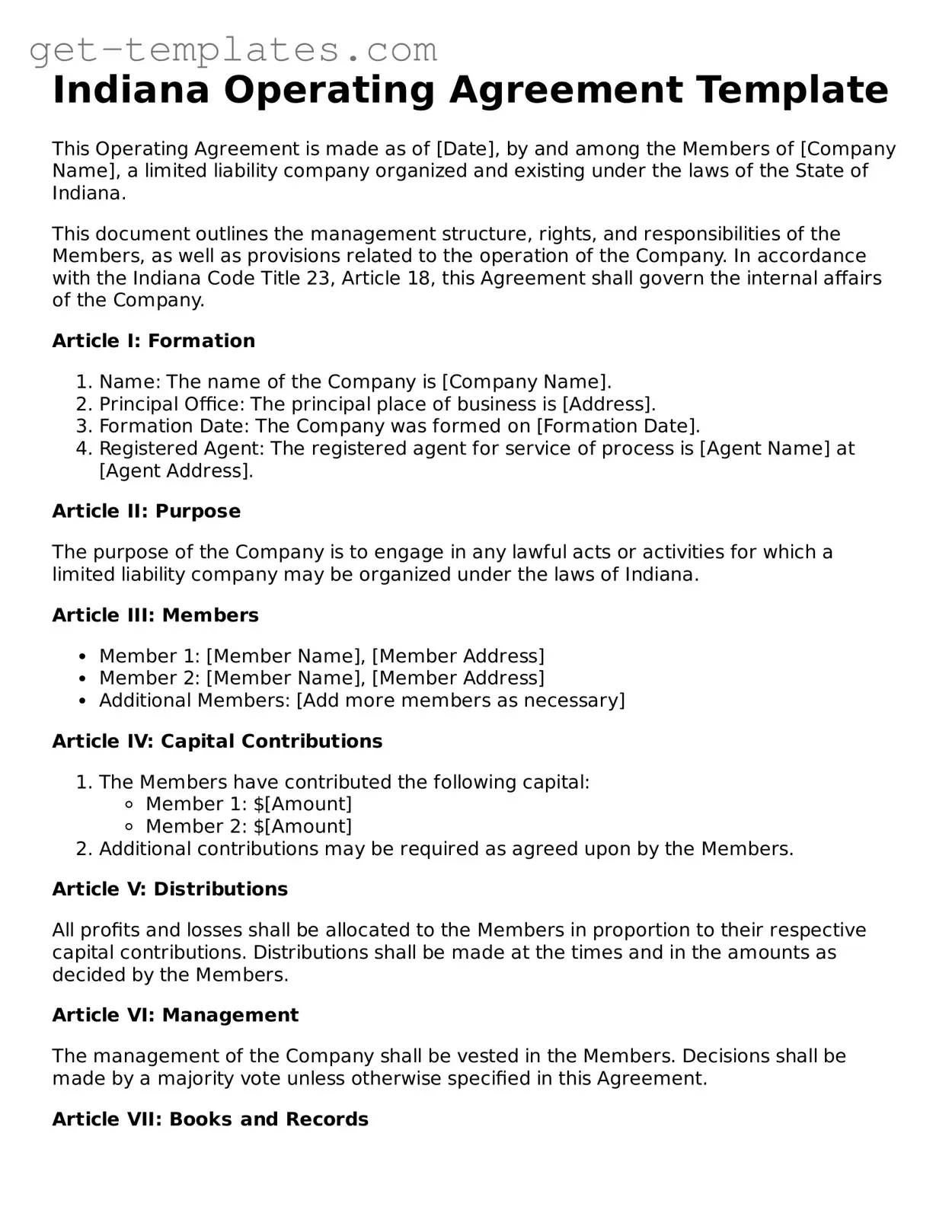Attorney-Approved Operating Agreement Document for Indiana
The Indiana Operating Agreement is a crucial document that outlines the management structure and operational guidelines for a limited liability company (LLC) in Indiana. This agreement serves as a roadmap for members, detailing their rights, responsibilities, and the procedures for making important decisions. Understanding this form is essential for anyone looking to establish a clear framework for their business operations in the state.
Get Document Online

Attorney-Approved Operating Agreement Document for Indiana
Get Document Online
You’re halfway through — finish the form
Finish Operating Agreement online — edit, save, download made easy.
Get Document Online
or
⇓ PDF Form
